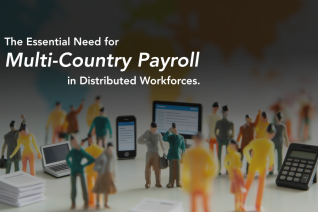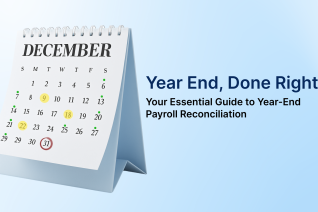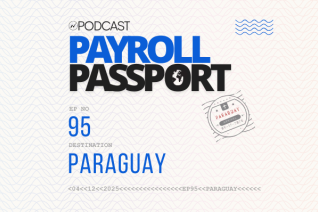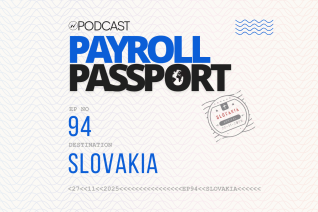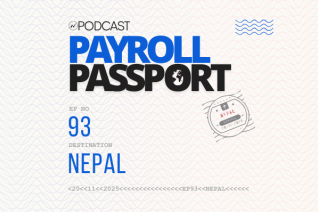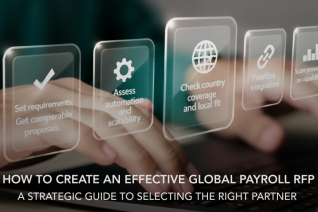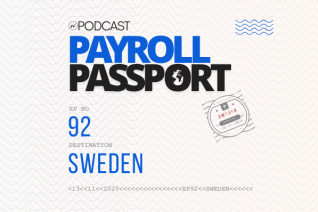Remote work, Real taxes: Navigating the Global Maze

Attending virtual meetings with your team in New York while lounging on a Bali beach sipping coffee - that's the dream scenario for remote workers. But amidst the sun, sand, and freedom, there’s one thing that could cast a shadow over your digital nomad life; taxes.
While working remotely across borders may feel like a ticket to freedom, the complexities of tax obligations are not so easily avoided. Navigating the tax implications of global remote work requires just as much attention as finding the perfect spot for Wi-Fi on the beach.
ALSO READ: Simplify Tax Compliance in Global Payroll with These Tips
The Multi-Jurisdictional Challenge
When employees work remotely across different countries, their tax obligations don't stop at the border. The key question becomes, "Where should I pay taxes?" Tax residency rules and double taxation agreements (DTAs) between countries usually determine the answer. In most cases, countries claim the right to tax individuals based on residency, income source, or both.
For instance, while spending more than 183 days in a country typically establishes tax residency, many nations also consider factors such as permanent home ownership, family connections, and the location of your economic activities. This means you could unintentionally become a tax resident in multiple countries, risking the possibility of double taxation.
Take Sarah, a U.S. citizen working remotely for a German company while living in Berlin. Under U.S. tax law, Sarah must file her U.S. tax returns, regardless of her physical location. If she remains in Germany for more than 183 days in a year, she may also be classified as a tax resident there. Without proper planning, this dual residency could lead to double taxation, underscoring the importance of understanding the tax implications of living and working abroad.
Double Taxation Agreements (DTAs)
Double taxation agreements (DTAs) between countries play a vital role in safeguarding remote workers from being taxed on the same income in two jurisdictions. These treaties can differ significantly from one country to another, making it crucial for remote workers to understand their obligations under the specific DTA between their home and work countries.
For example, the UK-Australia DTA offers relief to individuals who might otherwise face taxation in both nations, ensuring they are not penalized for earning income across borders. Similarly, the U.S.-Germany DTA provides similar protections, allowing U.S. citizens living and working in Germany to avoid double taxation on their income.
Without such treaties, remote workers could be liable for taxes in both their country of residence and where their employer is located, complicating their financial obligations and potentially leading to significant tax burdens. Understanding these agreements is essential for effective tax planning and compliance.
ALSO READ: Navigating the Global Workforce: Your Compliance Guide For Remote Hiring
Permanent Establishment Risk
Another critical consideration for companies hiring remote workers abroad is permanent establishment (PE) risk. PE refers to a business having a taxable presence in a foreign country, which may happen if the remote worker's activities are deemed substantial enough to create such a presence. For example, a sales executive closing deals or a manager directing operations from abroad might create this risk for their employer, triggering corporate tax liabilities.
Social Security and Contributions
It’s not just about income tax—remote workers must also navigate social security contributions. These may vary greatly between countries, and in some cases, workers may need to contribute to multiple systems if their home and host countries lack a Totalization Agreement. This can lead to higher costs and unexpected liabilities for both the employer and the employee.
ALSO READ: Navigating Payroll Tax Compliance Across Borders: A Global Business Guide
Local Tax Benefits and Deductions
Interestingly, remote work may also offer tax-saving opportunities, such as claiming home office deductions in certain jurisdictions. For example, in the U.S., self-employed individuals can deduct home office expenses like utilities, rent, and even a portion of mortgage interest.
However, W-2 employees may not enjoy the same benefits, adding another layer of complexity depending on employment status.
Tips for Remote Workers and Employers
- Understand Residency Rules: Familiarize yourself with the residency rules in both your home and host countries to avoid unintended tax residency and double taxation.
- Research Double Taxation Agreements (DTAs): Check if a DTA exists between your home and host countries to understand the tax relief options available and prevent double taxation on the same income.
- Consult a Tax Professional: Seek advice from a tax professional specializing in international tax laws to navigate complex obligations and identify potential deductions.
- Keep Detailed Records: To support tax filings and deductions, maintain accurate records of income, expenses, and time spent in different jurisdictions.
- Maximize Deductions: Take advantage of any local tax benefits, such as home office deductions, to reduce overall tax liabilities, especially if you are self-employed.
Remote work offers unprecedented flexibility but comes with intricate tax implications that should not be ignored. Whether it's managing residency rules, navigating double taxation, or handling social security contributions, a careful strategy is crucial. Both remote workers and employers must stay informed of these tax complexities to avoid unforeseen liabilities. And while working from a tropical paradise may seem stress-free, keeping your taxes in check is essential for maintaining that peace of mind.
At Neeyamo, we specialize in global payroll solutions, ensuring compliance and streamlining payroll processes across different jurisdictions. Our expertise helps companies navigate the complexities of international tax obligations, enabling you to focus on what you do best—growing your business.
To navigate the complexities of tax obligations with ease, Neeyamo is here to assist you! Contact us at irene.jones@neeyamo.com for expert guidance. Our team of specialists can provide tailored support to help you effectively manage your global payroll and tax responsibilities.
Don’t let tax complexities hinder your remote work dreams!
Latest Resources
Stay informed with latest updates
If you're curious and have a thirst for knowledge pertaining to the HR, payroll, and EOR universe, don't miss out on subscribing to our resources.




